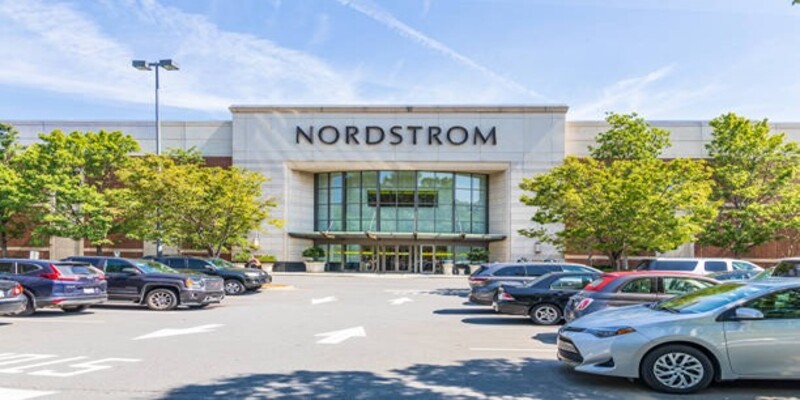
Commercial construction loans are a vital tool for business owners and developers who are looking to build or expand their commercial properties. These loans provide a lifeline for businesses that wish to create a custom workspace, extend their commercial reach, or renovate their existing infrastructures. Unlike standard business loans, commercial construction loans are typically used to cover both the labor and materials needed for a construction project. The terms and conditions for these loans can be complex, and obtaining one is not always straightforward. This guide is designed to provide a comprehensive understanding of commercial construction loans, their usage, the application process, and how you can secure one to meet your business needs.
Understanding Commercial Construction Loans

Commercial construction loans are a type of financing that is used to fund the construction or renovation of commercial properties. These loans are specifically designed for businesses and developers who need to cover the costs associated with constructing new buildings, expanding existing ones, or making major changes to their current infrastructure. Unlike residential construction loans, which are primarily used for building homes and other residential properties, commercial construction loans are meant for non-residential properties such as office buildings, retail spaces, warehouses, and more.
Key features and terms of commercial construction loans
Commercial construction loans typically have a higher interest rate and shorter repayment period compared to traditional real estate loans. The interest rates for these loans can range from 5% to 12%, depending on the lender's risk assessment and market conditions. The loan term is usually between six months to three years, with an option to extend if needed. Additionally, commercial construction loans require a down payment of 10% to 30% of the total project cost, depending on the lender's requirements.
Some key features and terms to be aware of when considering a commercial construction loan include:
- Loan-to-cost ratio: This is the percentage of the total project costs that the lender is willing to cover. It typically ranges from 80% to 90%, meaning the borrower needs to provide the remaining 10% to 20% as a down payment.
- Interest reserves: Many lenders require borrowers to set up an interest reserve account to cover the interest payments during the construction period. This ensures that interest payments are made on time, even if the project is delayed or runs into unexpected costs.
- Draw schedule: The disbursement of funds for a commercial construction loan is typically tied to a draw schedule. This means that the lender releases funds at specific stages of the construction process, such as after completing the foundation or framing.
- Inspections: Lenders often require regular inspections throughout the construction process to ensure that the project is progressing according to plan and within budget.
Types of Commercial Construction Loans
Commercial construction loans come in various forms, each with its own unique features and benefits. The most common types include:
- Acquisition and Development (A&D) Loans: These loans are used to purchase land and cover the costs associated with preparing it for development, such as site improvements and utilities.
- Mini-Perm Loans: These loans provide short-term funding for construction while the borrower secures a more permanent financing option, such as a traditional mortgage or SBA loan.
- Takeout Loans: A takeout loan is used to pay off the balance of a construction loan once the project is completed. It typically has a longer repayment period and lower interest rates, making it a more affordable option for long-term financing.
The Application Process for Commercial Construction Loans
The application process for a commercial construction loan can be lengthy and complex, as lenders need to thoroughly assess the risk involved in financing a construction project. It typically involves multiple stages, including:
- Gather necessary documents: To apply for a commercial construction loan, you will need to provide financial statements, projections, permits, licenses, and other relevant documents that demonstrate your business's financial stability and the feasibility of the project.
- Submit a loan request: Once you have all the necessary documents, you can submit a formal loan request to the lender, outlining details such as the project cost, timeline, and proposed collateral.
- Lender evaluation: The lender will evaluate your application based on factors such as your credit history, debt-to-income ratio, and the viability of your project.
- Property appraisal: The lender will also conduct an appraisal of the property to determine its value and potential for generating income.
- Loan approval: If the lender is satisfied with their evaluation, they will approve the loan request and provide a commitment letter outlining the terms and conditions.
- Closing: Once the commitment letter is signed, the closing process begins, and funds are disbursed according to the agreed-upon draw schedule.
How to Secure a Commercial Construction Loan?

Securing a commercial construction loan can be challenging, but there are steps you can take to increase your chances of approval. Some essential tips include:
- Maintain good credit: Lenders will closely evaluate your credit history when considering your loan application. Maintaining a good credit score and managing debt responsibly can greatly improve your chances of approval.
- Have a solid business plan: A well-thought-out business plan that outlines the project's costs, timeline, and potential for generating income is crucial in securing a commercial construction loan.
- Provide collateral: Lenders often require collateral, such as the property or other assets, to secure the loan. Having valuable collateral can help mitigate the lender's risk and increase your chances of approval.
- Work with an experienced team: Hiring a reputable contractor, architect, and other professionals with experience in commercial construction projects can instill confidence in lenders that your project will be successful.
Things to consider while applying for these loans
When considering a commercial construction loan, it's essential to carefully evaluate the risks and benefits to determine if it is the right financing option for your project. It's also crucial to thoroughly review the terms and conditions of the loan, including interest rates, fees, and repayment periods. Additionally, you should have a solid understanding of your business's financials and ensure that you can make the necessary down payment and meet other requirements set by the lender. By carefully considering these factors and working with a trusted lender, you can secure a commercial construction loan that helps turn your business's vision into reality.
Conclusion
Commercial construction loans provide the necessary funding for businesses to build new properties or renovate existing ones. These loans offer flexible terms and allow borrowers to finance large projects without having to tie up their own capital. However, securing a commercial construction loan can be challenging, and it's essential to follow the proper steps and have a solid understanding of the process. By carefully evaluating your options and working with experienced professionals, you can secure a commercial construction loan that helps bring your business's vision to life.



